detail profile andrzej pieczy c5 84ski
Peran Yang Di Mainkan Andrzej Pieczyński
 The film tells the story of...
The film tells the story of...White Courage 2024
The film tells the story of two Highlander brothers – Maciek and Andrzej. After the death of their father, which Andrzej contributed to, and the loss of his beloved Bronka, Andrzej leaves the family home. On his way, he meets the mysterious Wolfram, an anthropologist and climber. He shares with him his mountaineering technique and knowledge about the Prague origins of the highlanders. Andrzej returns to Zakopane, war breaks out. To protect the Highlanders from wartime destruction, he wants to persuade them to cooperate with the Germans. Andrzej and Maciek are standing on opposite sides of the barricade. The brothers' confrontation is bloody and painful.
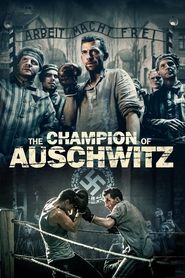 It is 1940 The first transport of...
It is 1940 The first transport of...The Champion 2021
It is 1940. The first transport of prisoners arrives at the newly created concentration camp Auschwitz. One of them is Tadeusz “Teddy” Pietrzykowski, pre-war boxing champion of Warsaw. The camp officers force him to fight in the ring for his and other prisoners’ lives. However, his every win strengthens the hope that Nazis are not invincible. Auschwitz officers notice the growing resistance. The confrontation with the authorities of the camp becomes inevitable.
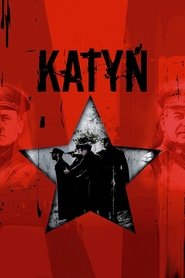 On September 1st 1939 Nazi Germany invades...
On September 1st 1939 Nazi Germany invades...Katyn 2007
On September 1st, 1939, Nazi Germany invades Poland, unleashing World War II. On September 17th, the Soviet Red Army crosses the border. The Polish army, unable to fight on two fronts, is defeated. Thousands of Polish men, both military and government officials, are captured by the invaders. Their fate will only be known several years later.
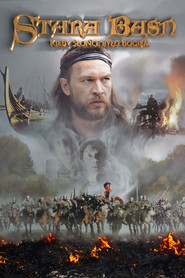 In IX century Europe on the...
In IX century Europe on the...The Old Fairy Tale: When the Sun Was God 2003
In IX century Europe, on the brink of Poland's birth, a cruel prince, Popiel, murders his cousins to ensure his son's succession. His crimes lead to an uprising of his subjects lead by the former commander of Popiel's army, Piastun, and a young hunter and warrior, Ziemowit. Meanwhile Ziemowit falls in love with Dziwa, lovely girl who is to become a priestess in the local temple ...
 The true story of pianist Wadysaw...
The true story of pianist Wadysaw...The Pianist 2002
The true story of pianist Władysław Szpilman's experiences in Warsaw during the Nazi occupation. When the Jews of the city find themselves forced into a ghetto, Szpilman finds work playing in a café; and when his family is deported in 1942, he stays behind, works for a while as a laborer, and eventually goes into hiding in the ruins of the war-torn city.
 Nikos is a master of funeral...
Nikos is a master of funeral...The Career of Nikos Dyzma 2002
Nikos is a master of funeral ceremonies (that's undertaker to you and me) who doesn't expect much from life. After drunkenly insulting a diplomat at a party, weird things begin to happen for Nikos. The news that a mysterious stranger offended the hated Deputy Prime Minister galvanizes the political elite assembled at the banquet, and a rumor that Nikos can take care of anything spreads like wildfire, making him an idol of the masses.
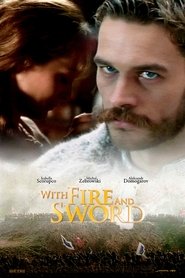 In the mid17th century Poland...
In the mid17th century Poland...With Fire and Sword 1999
In the mid-17th century, Poland was the largest, most democratic, and most tolerant country in Europe. However, a tragic civil war brought about the gradual decline of the once glorious republic... An epic story about the Ukrainian uprising against the Polish-Lithuanian Commonwealth magnates in the 17th Century.
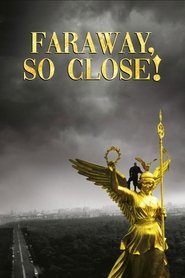 Damiel is now married to Marion...
Damiel is now married to Marion...Faraway, So Close! 1993
Damiel is now married to Marion, runs the pizzeria “Da Angelo” and the two have a child. The solitarily remaining angel Cassiel is more and more dissatisfied with his destiny as a mere observer of human life and finally decides to take the great leap. As Karl Engel he soon gets into a dubious milieu and finds himself as the assistant of the German American Baker, who makes his money with shady arms deals and sends films east in exchange for weapons. Cassiel’s adventure turns into a “thriller” when he decides to put a stop to Baker’s game.
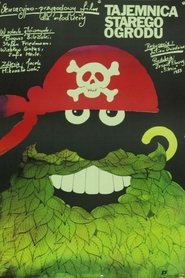 A group of teenagers dream of...
A group of teenagers dream of...The Mystery of the Old Garden 1984
A group of teenagers dream of adventures and experiencing something unusual, mysterious and romantic. The boys play treasure hunters and detectives in an old park adjacent to a modern housing estate. By accident, the heroes find the trail of a youth gang that stole the documentation of a sensational preparation that can be used in the preparation of animal feed. The gang members manage to suspect the inventor of the preparation, the engineer Tyc. His son, Andrzej, and his friends decide to expose the real criminals and find maps that are to indicate the place of the hidden treasure.
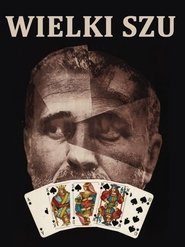 Released from prison after five years...
Released from prison after five years...Big Shar 1983
Released from prison after five years, con-artist Szu is sent packing by his young wife; he heads for the town of Lutyn where he runs a con and attracts the interest of Jurek, a young cab driver who imagines himself a great grifter. Szu ("Sharp") teaches Jurek a few tricks enabling the young man to win some money in Wroclaw, then Sharp departs with Jola, a prostitute who offers him a mark. How that plays out, Jurek's determination to win big, Sharp's cold calculations, and the wages of sin await.
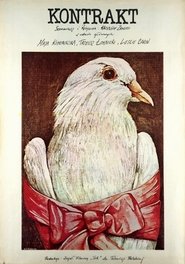 Bearing traces of the old Anton...
Bearing traces of the old Anton...The Contract 1982
Bearing traces of the old Anton Chekhov play The Wedding, The Contract is set during an "arranged" ceremony. The bride and groom barely know each other, but this matters not at all to their tradition-bound families. At the last minute, the bride balks. Only slightly nonplused, the groom's father, a status-seeking doctor, decides to go ahead with the expensive reception anyway. Polish director Krzysz Zanussi uses this scenario to stick it to capitalist corruption, and to society's destruction of the individual spirit. Leslie Caron, the one recognizable member of the cast, is outstanding as a wealthy, over-the-hill ballerina who happens to be a kleptomaniac.
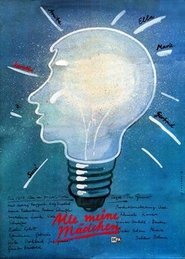 Ralf Paeschke is a film student...
Ralf Paeschke is a film student...All My Girls 1980
Ralf Paeschke is a film student who has to make a documentary film about a group of women working in a lamp factory. There is brazen Susie, mischievous Kerstin, lonely Anita, single Ella, withdrawn Gertrud and the imposing forewoman. When Kerstin is suspected of stealing, tension among the women mounts. Ralf demands that things be clarified, and his film plays an unexpected role in the matter.
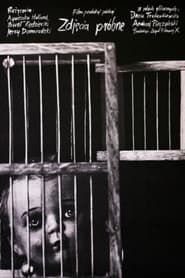 Threepart film centered around a film...
Threepart film centered around a film...Screen Tests 1977
Three-part film centered around a film being made by a group of young directors. In the first a working-class girl finishes school and has her first love affair, which ends badly. In the second a provincial boy with dreams of life in the theater has an affair with his boss' wife. They meet during the film's screen tests.
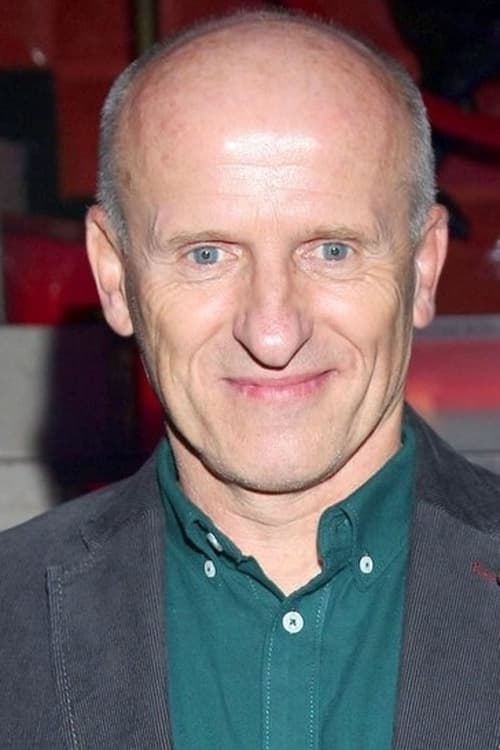
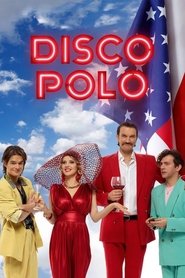 Young wannabe musicians from the province...
Young wannabe musicians from the province... The movie is set in Belarus...
The movie is set in Belarus...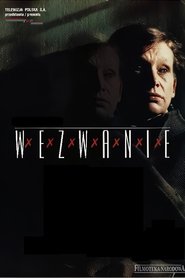 Based on the facts the story...
Based on the facts the story...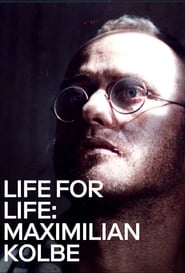 The story of catholic saint Maximilian...
The story of catholic saint Maximilian... Alfons lives with his grandparents on...
Alfons lives with his grandparents on...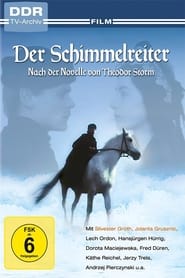 GermanPolish adaptation of Theodor Storms novella
GermanPolish adaptation of Theodor Storms novella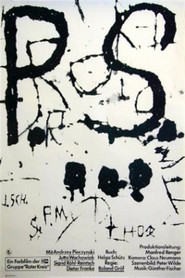 When he reaches age 18 Peter is...
When he reaches age 18 Peter is...